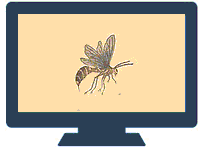Entomology, Department of

Department of Entomology: Distance Master of Science Projects
Date of this Version
2019
Document Type
Project
Citation
University of Nebraska-Lincoln Department of Entomology Online Masters Program Final Project. Lincoln, Nebraska.
Abstract
Since its introduction into the Integrated Pest Management (IPM) program over 20 years ago, the biotechnological approach for insect pest management, starting with transgenic Bacillus thuringiensis (Bt), appeared to have revolutionized the concept of genetic manipulation approach in insect pest management and crop protection. Transgenic (Bt) crops have offered great benefits in insect management for crop protection but soon after its implementation, the technology started facing the major issue of insect resistance, leading researchers to start pursuing advancements in newer biotechnological approaches to insect pest management, such as Gene Editing (the RNA interference (RNAi); Gene Drives and most recently CRISPR-Cas9 system). By 2012, scientists found a way to use CRISPR-Cas as a genome editing tool and in 2013 the CRISPR-Cas application in plants was successfully achieved, in the lab; leading to new opportunities for researchers to continue studying the CRISPR-Cas system for its potential applications and the opportunity to gain a better understanding of RNA mediated cell functions (given that RNA holds a central role in almost everything a cell does). This review will discuss the potential uses of CRISPR-Cas9 systems for agricultural and medical insect pest management as well its applications for plant diseases/crop protection. The review will also discuss the limitations, potential issues and prospects of the CRISPR-Cas9 technology as it pertains to insect pest management.


Comments
Copyright 2019 Anastacia Books